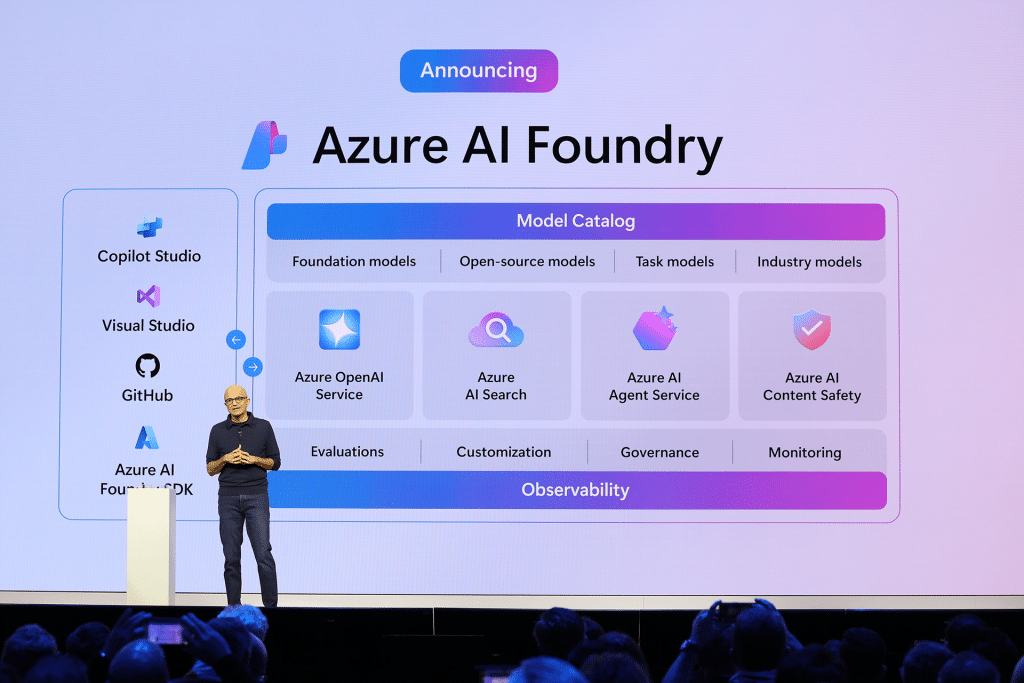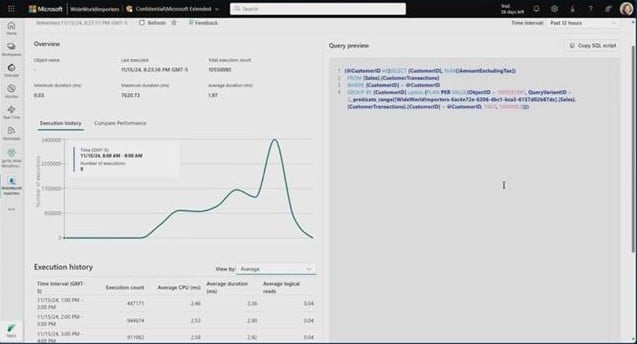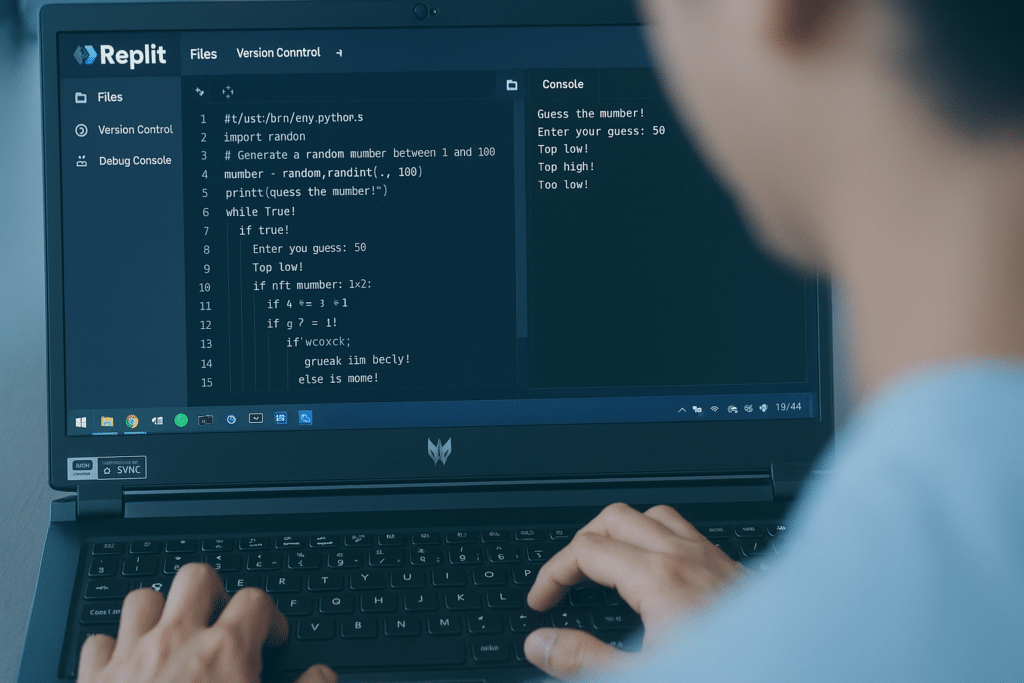The platform for advanced AI apps in 2025

The recent announcements at Microsoft Ignite 2024, particularly the introduction of Microsoft Fabric’s SQL Database and Azure AI Foundry, present significant advancements that align seamlessly with our mission to deliver cutting-edge generative AI implementations for our clients.
Enhancing Generative AI Implementations with Microsoft Fabric’s SQL Database
The SQL Database in Microsoft Fabric is engineered to be simple, autonomous, secure, and optimized for AI applications. This aligns perfectly with our approach to developing custom generative AI solutions, as it enables us to:
- Accelerate Development Cycles: The unified and integrated environment of Fabric’s SQL Database allows our engineers to perform common tasks associated with AI application development more efficiently. This leads to faster delivery of AI solutions, providing our clients with a competitive edge.
- Ensure Data Security and Compliance: With built-in features like cloud authentication and database encryption, we can assure our clients that their data is protected and compliant with industry standards.
- Leverage AI Optimization: The native support for vector search and retrieval augmented generation (RAG), along with integration with Azure AI services, enables us to build more intelligent and responsive AI applications. This enhances the user experience and delivers greater value to our clients.
By integrating Microsoft Fabric’s SQL Database into our development process, we can build AI applications more confidently and efficiently, bridging the gap between data management and AI innovation.

Streamlining AI Development with Azure AI Foundry
Azure AI Foundry consolidates Microsoft’s AI services into a cohesive platform, streamlining the creation and deployment of AI models. This integration offers several benefits that enhance our generative AI implementation services:
- Comprehensive AI Development Environment: The Azure AI Foundry Portal provides a centralized dashboard for managing AI applications, facilitating seamless integration with existing systems. This allows us to develop and deploy AI solutions more effectively.
- Unified Toolchain: The Azure AI Foundry SDK includes over 25 prebuilt templates and supports integration with tools like GitHub and Visual Studio. This enables our developers to build, customize, and deploy AI applications efficiently, leveraging Azure AI services for enhanced functionality.
- Accelerated Deployment: With prebuilt application templates and tools for automating deployments, we can bring AI solutions to production faster, ensuring that our clients can quickly realize the benefits of AI integration.
By leveraging Azure AI Foundry, we can harness the full potential of AI, facilitating the development of intelligent applications that transform business processes and customer experiences.
Combining Technologies for Superior AI Solutions
The integration of Microsoft Fabric’s SQL Database with Azure AI Foundry creates a robust platform for building advanced AI applications. This synergy offers several advantages:
- Unified Data Management: The SQL Database in Fabric provides a centralized data platform, ensuring that data is readily available for AI model training and deployment. This unification reduces data silos and enhances data accessibility across the organization.
- Seamless AI Integration: With built-in support for AI services and tools, developers can easily incorporate AI capabilities into their applications. The integration with Azure AI Foundry further simplifies this process, providing a comprehensive suite of AI development resources.
- Enhanced Productivity: The combination of these platforms enables developers to build AI applications more efficiently, leveraging tools like Copilot in Fabric for natural language query translation and the Foundry SDK for streamlined development workflows.
This cohesive ecosystem fosters innovation, allowing organizations to develop AI applications that are both powerful and scalable, ultimately driving digital transformation and competitive advantage.
Conclusion
At Talk Think Do, we are committed to leveraging the latest technological advancements to deliver superior generative AI implementation services for our clients. The innovations announced at Microsoft Ignite 2024, particularly Microsoft Fabric’s SQL Database and Azure AI Foundry, provide us with powerful tools to enhance our offerings. By integrating these technologies into our development process, we can build more intelligent, secure, and efficient AI applications, empowering our clients to harness the full potential of AI and achieve their business objectives.
As a Microsoft Solutions Partner and CCS Digital Outcome Supplier, we are equipped to help you assess your existing software system, identify your best-fit solution, and implement it according to AI implementation best practices.
To learn more about how we can help you develop your tailored AI solution today, book a free consultation with a member of our team.
Get access to our monthly
roundup of news and insights
You can unsubscribe from these communications at any time. For more information on how to unsubscribe, our privacy practices, and how we are committed to protecting and respecting your privacy, please review our Privacy Policy.
See our Latest Insights
Using AI to Strengthen ISO 27001 Compliance
Preparing for our ISO 27001:2022 recertification, and a transition from the 2013 standard, was no small task. As a custom software company handling sensitive client data, we hold ourselves to high standards around security and compliance. But this year, we approached the challenge differently. We built and deployed a custom AI Copilot agent to help…
Who Owns AI-Written Code? What CTOs, Developers, and Procurement Teams Need to Know
Generative AI is transforming how software is written. Tools like GitHub Copilot, Claude, Cursor, and OpenAI Codex are now capable of suggesting full functions, refactoring legacy modules, and scaffolding new features, in seconds. But as this machine-authored code finds its way into production, a critical question arises:Who owns it and who’s responsible if something goes…
When Open Source Goes Closed: Commercialisation, AI, and the Future of Software Dependence
Open source software has been a cornerstone of modern development for two decades. It’s fast to adopt, battle-tested by communities, and, most importantly, free. But lately, “free” has started to come with fine print. From infrastructure tools to developer libraries, many open source projects are turning commercial. For developers, software buyers, and architects alike, this…
Legacy systems are costing your business growth.
Get your free guide to adopting cloud software to drive business growth.




